SRBENKA
The Croatian movie Srbenka received The Human Rights Film Award of the Verzió 15 International Human Rights Film Festival in Budapest. Director Nebojša Slijepčević is interested in several topics. Like, more than two decades after the Balkan Wars, why is Serbian nationality still problematic in Croatia? Why is the Croatian right wing demonstrating against the Istanbul Convention, which is trying to protect women against violence? And why do people in certain territories of the country live in the 21st century like in the middle ages, surrounded by wolves, bears and bandits?
How did you end up doing this film? How did you find the theme?
I don’t know how well-known Oliver Frljić is in Hungary, but in Croatia he is by far the most famous and infamous theatre director, because he is the most provocative political theatre author and director in Croatia. Also, many people consider him a national traitor, and he is hated by people who have probably never seen the building of a theatre, let alone watch any of his plays. Personally, I admire him extremely, because he is a very brave, important author. The things he does are much needed in Croatia. When I learned that he does the theatre play about the case of Aleksandra Zec, I was about to start my new film. I wanted that film to deal with the same topic: position of minorities, and especially the Serbian minority in Croatia. 25 years after the war ended, we live peacefully – but do we really live peacefully, that was my question. When I learned that he is doing a theatre play about the case that is in some ways paradigmatic for the treatment of Serbian civilians in the Croatian society during the war, civilians who were not the enemies, but their only crime was their nationality, I thought this was a good place to start working on my new film. I expected to film maybe one or two scenes of this play, but it worked out quite differently than we expected. I met the twelve-year-old actress, Nina, who became the main character of the film.
It turned out during the rehearsals that she was Serbian.
Yes, and the whole drama started when the director of the play asked Nina to say publicly during the performance, in front of the whole audience, that she was Serbian. She asked that from all the other actors, because that is the kind of theatre Oliver does, combines fiction with reality, acting with presenting yourself. Nina was the only one who had a problem with it, because she was actually afraid to say that she was Serbian. She was born long after the war has ended, and it was quite shocking for me that in 2014, twenty years after the war, she was afraid about her identity. I wanted to find out: why? The answer is quite complex, and it is not up to me to do this analysis. The point of the film is to make the problem visible, and people to discuss it. What also stroke me that she remembered the exact time when she had found out that she was Serbian, at the age of seven. She cried when she found out that she was not Croatian. Even grown-ups shouldn’t be bothered too much about nationality, but for a seven-year-old child to have a trauma, feeling that she has the wrong nationality, it is not normal. This is where the whole story started and it evolved during this one month long rehearsal period until the premiere.
The director of the play was heavily criticized for choosing this topic. How did he deal with this?
That’s exactly his goal, I would say. He works all over the world. He made plays in Serbia, Poland, Czech Republic, Austria, and now in Germany. Wherever he goes, he chooses a topic that it is in a way controversial for the local community. He provokes consciously, because he thinks that this is the way to deal with such problems. I agree with him, at least for the theatre, although making a film is something different for me. So this is one of the reasons why he made this play in Zagreb. Even his play starts with why are we doing the story of the Serbian girl victim why not the many Croatian children who were killed in the war? It’s a valid question. But it’s more important to do work of art about the others than ourselves. The narrative about “us the majority” is present in the society anyway. An artist cannot repeat the dominant narrative. For me, that is not art, it’s only a propaganda. Art must break difficult topics. What I like is Oliver’s work is that he doesn’t want to make things simpler than they are. We live in a complex world, art should reflect complexity. It is very easy to preach easy solutions, but that is just empty preaching.
In my film, I try to incorporate the other side, too, not because I agree with the other side, but I want to listen to it as well. It’s important to listen to all sides, so that you can respect the complexity of the problem, you don’t simplify it. If you listen to only one side, it is very easy to find a simple solution, but that’s not a real solution.
How did the premiere go?
Actually I haven’t seen the premiere; I was waiting with my camera outside for shooting the final scene. I had several cameras in the performance hall: none of them were pointed to the stage; some of them were pointed to the audience, some of them were grabbing the close ups of the actors. But I haven’t seen the premiere, although I saw the play many times before during the rehearsals, and many subsequent presentations.
Were the dramatic feelings, aroused in Nina during the rehearsals, relieved by the premiere?
It was a very personal experience for the professional actors. For Nina, it was not only a new experience, but also an act of emancipation. Now she is seventeen, the problem of nationality is distant from her, now she has other teenage girls’ problems. This theater play experience played an important role in that: to get over something, finding her identity.
Where was the film screened since the premiere?
The world premiere was in Nyon, at Visions du Réel. It is not the biggest festival, but for me it was quite important, since this festival’s reputation is that they are choosing daring artistic films, focusing on authorship, not on the journalistic aspect; we received the human rights award for Srbenka. And we had quite a lot of success afterwards: shortlisting for the European Film Awards best documentaries of the year, at the Cannes Film Festival we received the Doc Alliance Selection Award, alliance of seven film festivals. At the Sarajevo Film Festival we got two awards: the jury award and the audience award. It almost never happens that the same film receives both the jury and the audience award. I was very happy, because the audience is really important to me. Last, it was at DOK Leipzig, the second biggest film festival in Europe; next, it goes to IDFA Amsterdam, the biggest one. When I made this film, I was not thinking about festivals, I made it for the Croatian audience, where it is right now in the cinemas; it is doing well for a documentary, it’s the most watched documentary in the last couple of years.
What are the reactions of the audience?
We have a lot of feedbacks, positive ones mostly. I receive private messages from people sharing their stories; they feel somehow invited to share it. I had some ultra right wing media attack, too. I would have been surprised if that hadn’t happen, thinking that my film lost his power… These attacks were even before the film was shown; they wrote them without even watching it. I have no problem to talking to anybody, right wing or left wing, if it is on the level of talking, not just shouting.
Next plans?
I have several, and I’m going to start working with them when I finish the festivals. I share some topics that I am interested in right now. One is the treatment of women in the Croatian society, and especially violence against women, in the light of the Istanbul Convention. The right wing claimed that this convention destroys the Catholic way of life, and they had petitions trying to stop it.
The other topic that interests me is the dying parts of the country, villages where only old people live by now; some of these villages – on the mainland, not even far from Zagreb, the so-called Serbian parts that the government doesn’t care about – are completely forgotten, and these people live like in the wide wild west. They hardly have electricity, maybe a gun to protect themselves from wild animals and bandits. We worked hard to build civilization, roads, electricity, and now we go back in time, nature is winning. People are living with wolves and bears around them as first door neighbors. Their stories sound like they were in the middle ages, not the 21st century.
Interview and translation: Enikő Nagy

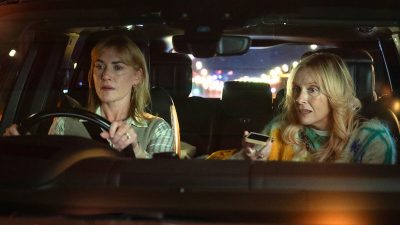
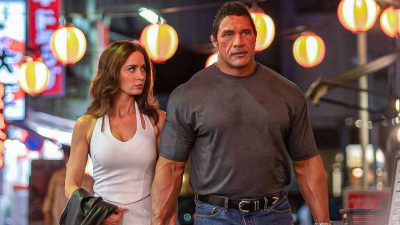
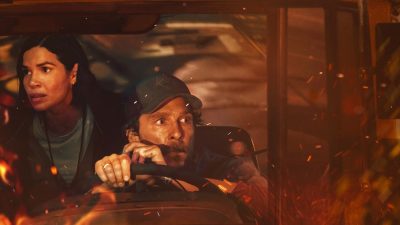


















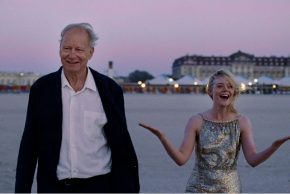
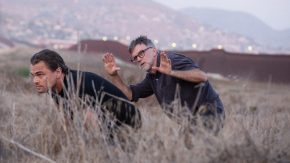
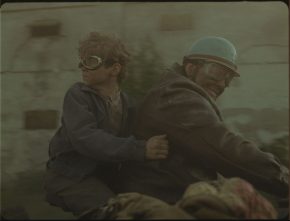
Comments